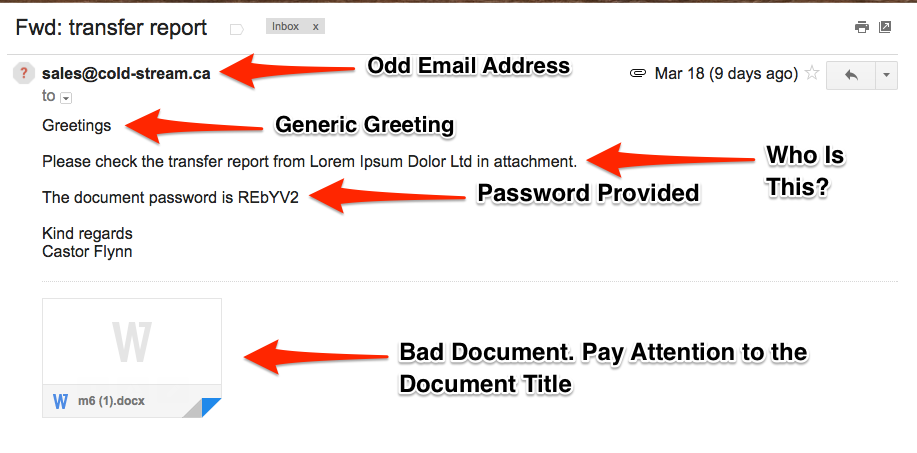Understanding AI-Powered Social Engineering Attacks
Social engineering manipulates people into revealing sensitive information or granting access to systems. Traditionally, it has involved phishing emails or impersonating authority figures. Today, artificial intelligence (AI) is taking social engineering to a new level. AI attackers can personalize scams, create realistic fake personas, and even hold convincing conversations with chatbots.
This article explores the growing threat of AI-powered social engineering, how it works, and how to defend yourself. Stay tuned to learn about the latest attack methods, the psychology behind them, and practical steps you can take to stay safe.
The Rise of AI-Powered Social Engineering
Remember those "one-size-fits-all" phishing emails? AI is changing the game. Attackers now leverage data analysis to craft hyper-personalized scams, tailoring messages and scenarios to your interests and vulnerabilities. Imagine receiving an email that mentions your recent online purchase or addresses you by nickname – unsettling, right?
This personalization does not stop at text. AI is creating deepfakes and synthetic media – realistic videos and audio recordings of real people – to impersonate authority figures or loved ones. Consider a convincing video call from your "bank" requesting urgent action. Scary, isn't it?
But personalization is not enough. Attackers also deploy conversational AI and chatbots that engage in natural-sounding dialogues, building trust and extracting information. Remember those chatbots offering "customer support"? They might be more sophisticated than you think.
In 2022, cybercriminals used legit-looking emails and AI-powered chatbots to target HR departments, posing as job applicants and stealing sensitive company data. Another example involved deepfakes of executives used to manipulate stock prices. These are just a glimpse into the growing threat landscape of AI-powered social engineering.
These are not just hypothetical threats. From nation-states launching disinformation campaigns to cybercriminals impersonating CEOs, AI-powered social engineering is a reality across various attacker types. Be prepared – the next attack might not be a generic email but a personalized, convincing scenario designed to deceive you.
Beyond Phishing: Where Social Engineering Goes Online
Phishing emails might seem old-fashioned now. AI is expanding the social engineering battlefield to your favorite social media platforms, messaging apps, and seemingly harmless online quizzes. Given that over half of the world's population is active on social media, exercising caution is paramount to safeguarding personal information and privacy.
Hackers leverage AI to exploit echo chambers, where people are exposed only to information confirming their existing beliefs. This makes them more susceptible to fake news and scams disguised as content aligned with their views.
Imagine scrolling through your social media feed and seeing an ad for a product endorsed by an influencer you trust. This influencer, however, might be a cleverly crafted AI-generated persona promoting a fake product or luring you to a malicious website.
A recent study by Proofpoint found that 83% of social media users have encountered AI-generated content they couldn't distinguish from real human-made content. This highlights the growing challenge of discerning truth from AI-powered manipulation.
But it is not just about online personas. AI can also analyze your personal data to craft messages that tap into your deepest desires, fears, and biases.
Imagine receiving a personalized message claiming you won a lottery you never entered, or a notification about a "security breach" related to a specific online account you use. These tactics exploit our natural tendency to trust information relevant to us, making us more likely to click on malicious links or reveal sensitive information.
Social engineering is not just about individual victims anymore. AI is empowering complex attacks like spear phishing, where attackers target specific individuals within an organization. Imagine receiving an urgent email from your CEO, crafted by AI to mimic their writing style and request confidential information.
AI also fuels business email compromise (BEC) scams, where attackers impersonate executives to trick employees into transferring funds. The sophistication of these attacks, combined with the human element of social engineering, makes them incredibly dangerous.
Building Your Defenses: How to Thwart AI-Powered Deception
The good news is you are not defenseless against AI-powered social engineering. Here are several key strategies to stay ahead of the curve:
- Fighting Fire with Fire: AI can be your ally too. Consider AI-powered anomaly detection tools that can flag suspicious behavior patterns in emails, messages, and online activity. These tools can learn your normal interactions and alert you to anything unusual, potentially catching AI-crafted scams before they succeed.
- Knowledge is Power: The more you know about AI tactics, the less likely you are to fall victim. Consider incorporating online criminal justice degree programs or certifications that specialize in cybersecurity awareness and digital forensics. User education and awareness training are crucial. Learn to identify red flags like overly personalized messages, unsolicited offers, and pressure tactics. Remember, legitimate companies will not create a sense of urgency or demand immediate action.
- Lock it Down: Multi-factor authentication (MFA) adds an extra layer of security beyond passwords. Even if attackers obtain your password through AI-powered phishing, they will be blocked by an additional verification step like a code sent to your phone. Additionally, regularly update your software and devices to patch security vulnerabilities that attackers might exploit.
- Teamwork Makes the Dream Work: Social engineering often relies on exploiting trust. Be cautious about sharing personal information online, and verify the authenticity of any requests, even if they seem to come from someone you know. Report suspicious activity to the appropriate platforms or authorities. Remember, collaboration and information sharing across individuals, organizations, and even industries can help expose and disrupt large-scale social engineering campaigns.
A 2022 report by Verizon indicates that 82% of data breaches involved a human element, highlighting the importance of combining technology and human awareness in cybersecurity. As we navigate these challenges, it’s essential to seek ways to boldly defend against misuse while working to humanize AI – ensuring it serves people, rather than manipulates them
By combining these strategies, you can create a robust defense against AI-powered social engineering. Stay vigilant, stay informed, and do not be afraid to fight back – with knowledge and awareness, you can outsmart even the most sophisticated AI scams.
The Evolving Landscape: What's Next and How to Stay Safe

A deepfake image of Donald Trump being arrested generated by Midjourney (Source)
While the battle against AI-powered social engineering rages on, new threats are brewing. Be aware of:
- AI-generated deepfakes becoming even more realistic, blurring the line between truth and fiction, potentially impacting elections and public trust.
- Social engineering attacks targeting smart devices and the Internet of Things (IoT), exploiting vulnerabilities in connected homes and workplaces.
- AI-powered psychological manipulation tactics becoming more sophisticated, potentially preying on deeper human emotions and vulnerabilities.
Remember, defense strategies need to adapt as quickly as threats evolve. Stay informed about emerging trends, update your security measures regularly, and be cautious of anything that seems too good to be true.
But AI is not all doom and gloom. There is a potential for ethical AI to be used for positive social engineering, such as:
- Countering disinformation campaigns by identifying and flagging manipulated content.
- Raising awareness about phishing scams like smishing and vishing and educating vulnerable populations.
- Personalizing educational and training materials to make them more engaging and effective.
The key lies in responsible development and deployment of AI technology. By harnessing its power for good and staying vigilant against its misuse, we can create a safer and more secure online environment for everyone.
Stay Ahead of the Curve: Your Defense Against AI-Powered Deception
Remember, social engineering is not just about phishing emails anymore. AI is making scams more personalized, believable, and far-reaching. But do not despair! By staying informed about AI tactics, practicing caution online, and utilizing a layered defense with tools and awareness training, you can significantly reduce your risk. Together, we can create a safer online environment by promoting responsible AI development, collaborating across industries, and staying vigilant against evolving threats.
Established in 2010, Compass IT Compliance has consistently positioned itself at the forefront of providing comprehensive and insightful social engineering assessments. Our expertise is dedicated to assisting organizations in preemptively recognizing and mitigating potential risks, thereby safeguarding against exploitation by malicious entities. We invite you to contact us to discover more about our services and to discuss tailored solutions for your specific IT challenges!
Contact Us
Share this
You May Also Like
These Related Stories

Spear Phishing: Targeted Attacks with Higher Success Rates

What Are the Best Ways to Prevent Social Engineering Attacks?

.webp?width=2169&height=526&name=Compass%20white%20blue%20transparent%202%20website%20(1).webp)
-1.webp?width=2169&height=620&name=Compass%20regular%20transparent%20website%20smaller%20(1)-1.webp)
No Comments Yet
Let us know what you think